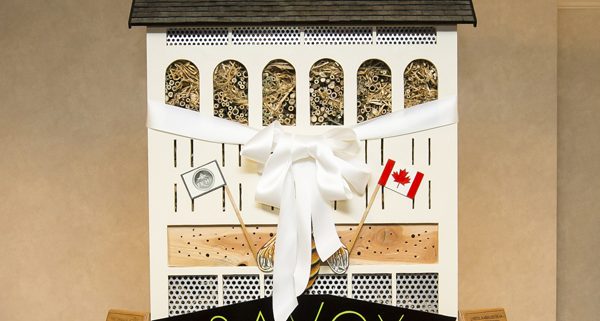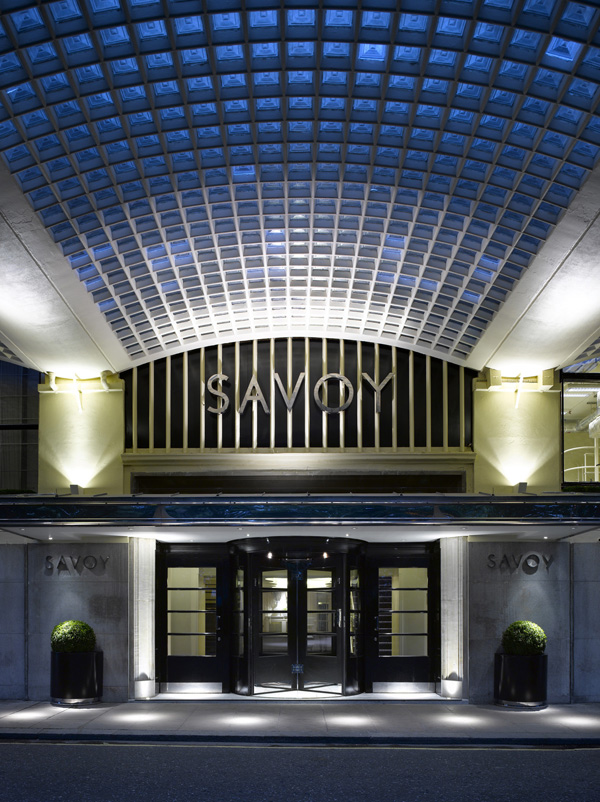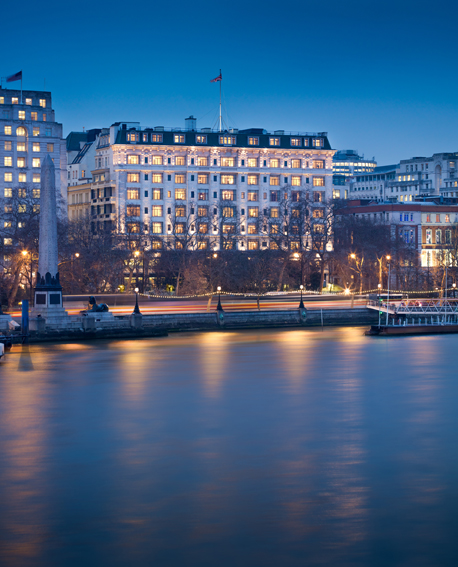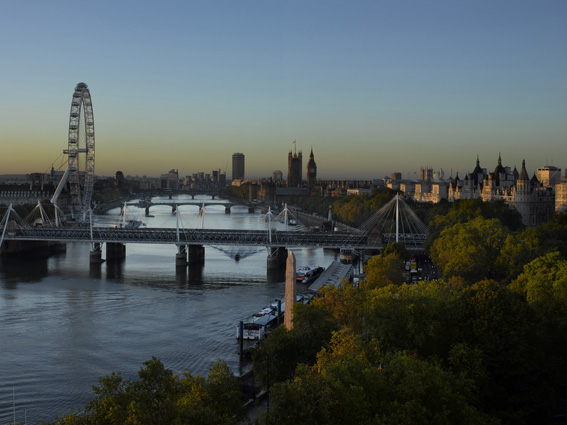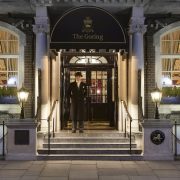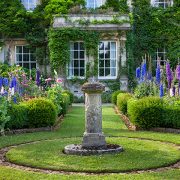London is abuzz
The Savoy, A Fairmont Managed Hotel, has unveiled a Bee Hotel at the Canadian High Commision in London to support the plight of the pollinator bee.
The Bee Hotel
Designed and built in-house, The Savoy Bee Hotel was unveiled by the High Commissioner for Canada at the Canadian High Commission’s Macdonald House in late October 2014 and will find its permanent home later this year on the rooftop of a newly-revitalised Canada House on Trafalgar Square. Once in place overlooking Trafalgar Square, the Bee Hotel will provide the perfect, sustainable home for some of central London’s Solitary Bees; namely the Red Mason Bees, Leafcutter Bees and Carpenter Bees.
Approximately 220 species of wild ‘Solitary’ bees reside in the UK. They are harmless, rarely sting and do not live in hives or honeycombs. Sadly, research indicates the overall number of pollinator bees has been on a steady decline for decades, greatly impacting the health of ecosystems, the reproduction of flowering plants and the pollination of our food. This is a grave concern, as bees are responsible for pollinating more than 80 per cent of flowering plants, fruits and vegetables. A primary cause of this decline is the loss and fragmentation of habitat.
The Savoy Bee Hotel has been carefully constructed to incorporate a range of floors that offer a different nesting site to accommodate all pollinator bee sizes and needs as follows:
• ROOFTOP ROOMS offer dry leaves, twigs and dry brambles.
• TOP FLOOR SUITES offer desirable bundles of bamboo canes that act as perfect hollow nesting tunnels; protected by the roof overhead from rain and wind.
• FAMILY SUITES on the middle floor offer plenty of dry leaf litter, twigs, stems and bits of wood, hidden behind a slatted façade.
• SINGLE ROOMS set in a wooden floor offers a selection of drilled holes in different diameters to accommodate the various sizes of Solitary Bees.
• GROUND FLOOR guest rooms are specially designed for pine cones.
Once in residence, the bees will use The Savoy Bee Hotel as their permanent home for at least nine months. On arrival they will begin to construct their cells, lining them with a collected mixture of pollen and nectar or cut leaves, where they lay an egg and wall it up with mud. Once the egg hatches, the larva eats this nutritious mixture and then pupates, finally emerging as an adult bee the following spring of summer and becoming a new resident guest.
The Savoy
Situated on the banks of the Thames since 1889, the iconic Savoy has been awarded time and time again for their commitment to sustainability and their leadership in improving local community well-being and ecosystems. Earlier this year, The Savoy partnered with social enterprise, River of Flowers to create the capital’s first ever central wildflower walk, a floral trail to increase the planting of native wildflowers in the city, and awareness of green and floral spaces along the Thames. All along the river, green space planted with wild flowers will create a string of ‘pit-stops’ for bees and other pollinators.
As part of the luxury hotel brand’s Fairmont Sustainability Partnership, a number of Fairmont hotels have developed solitary bee initiatives to offer pollinator bees natural habitats to eat, rest and pollinate. Additionally, in support of healthy bee populations globally, Fairmont also has many honeybee apiaries on rooftops and in gardens around the world.

